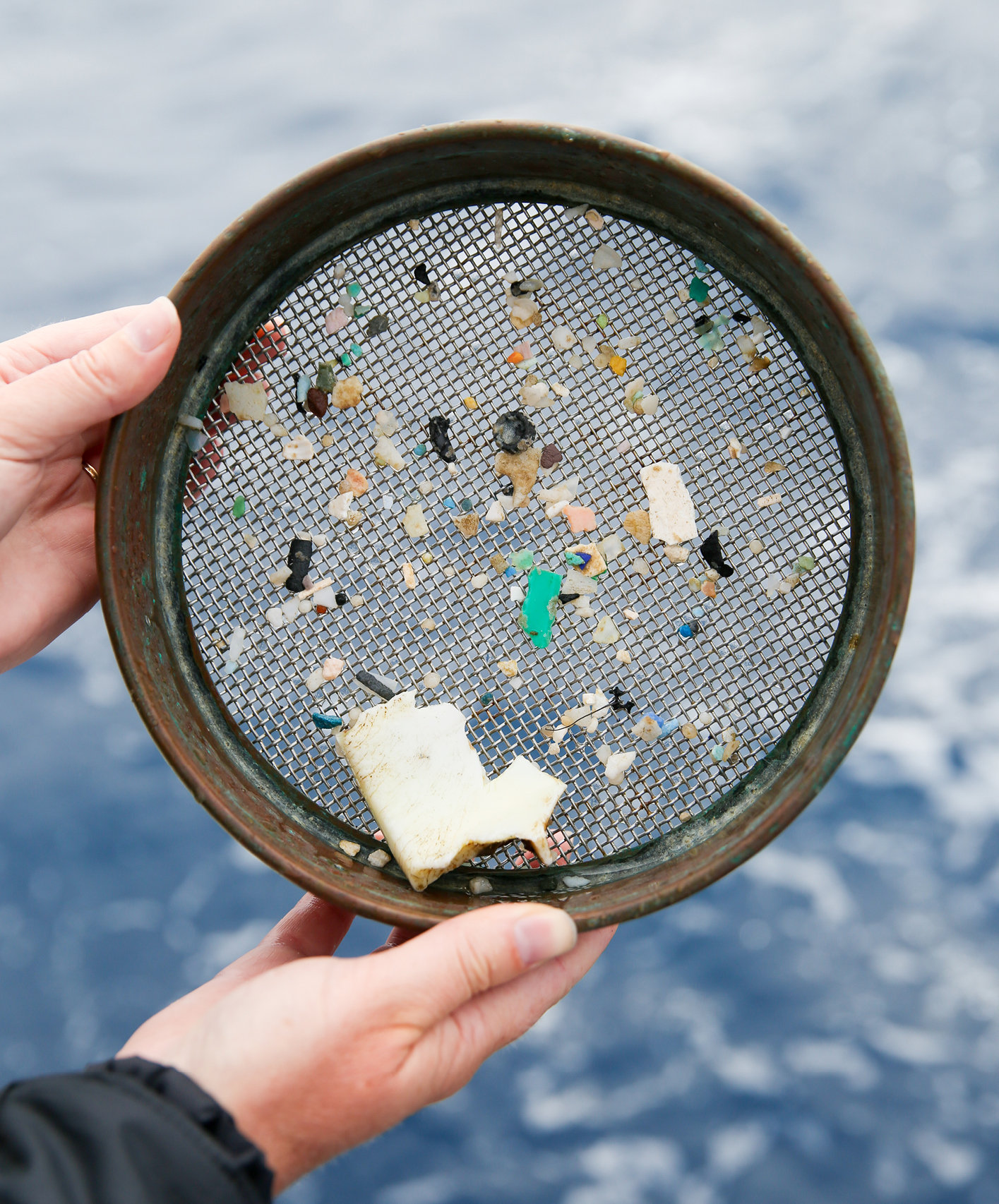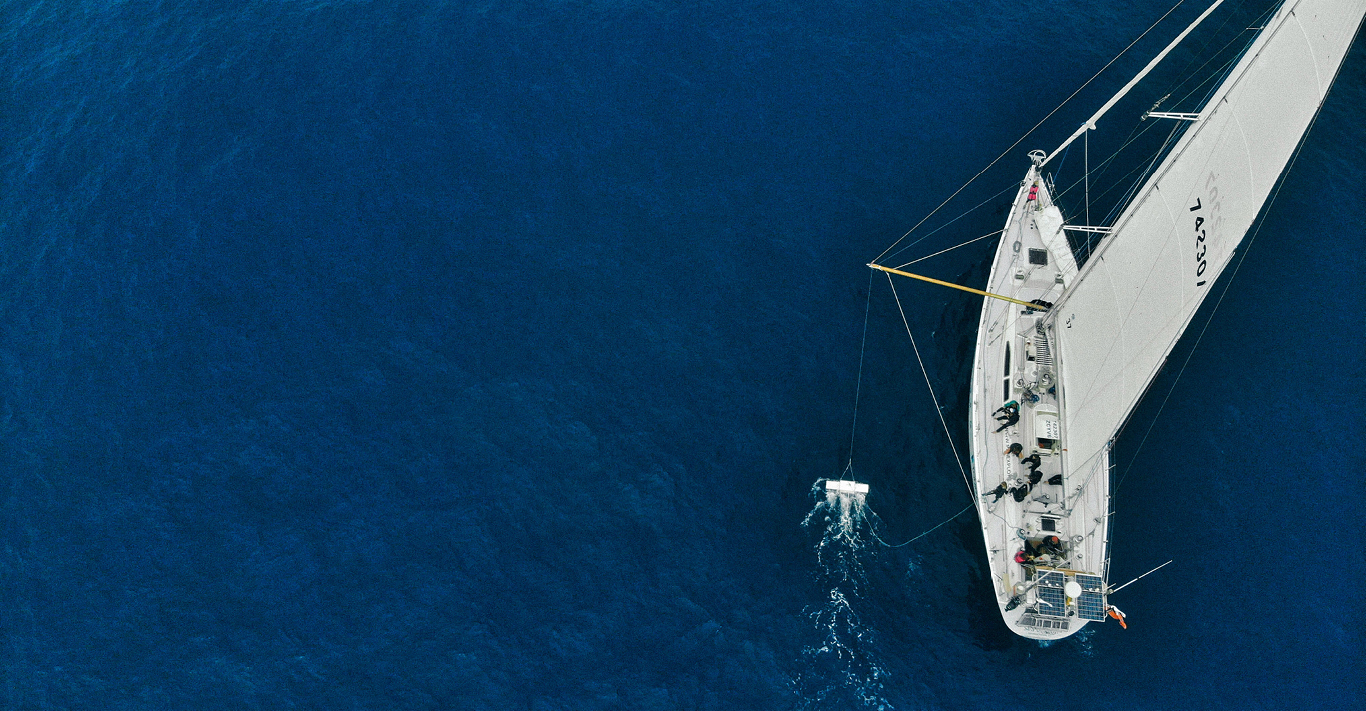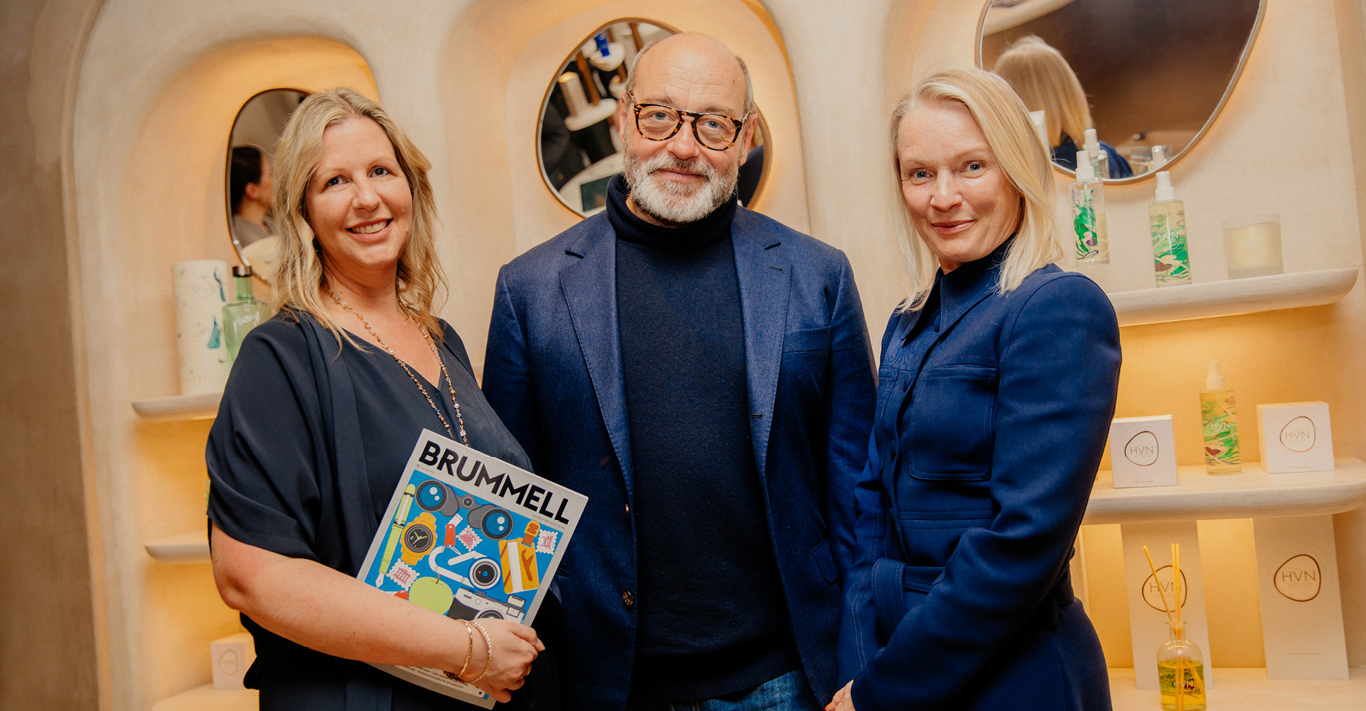WORDS
Nick Smith
‘We know more about the moon than we do about our oceans,’ says Emily Penn, international sailor, environmentalist and campaigner. But what little we know is enough to tell us that they are polluted by plastic and, as Penn says, the scale of the problem is vast and growing. This plastic is a huge cause of environmental concern, especially in the “accumulation zones” – five ocean gyres that are gigantic vortexes where particles get trapped in the spiral currents. ‘We’ve probably all heard of the Great Pacific garbage patch,’ says Penn, referring to an area of ocean the size of Texas in which marine plastic contaminants clog up the water from horizon to horizon. ‘That’s just one of them. It’s like soup. At its most dense there are more than half a million fragments of plastic per square kilometre.’
Despite the public perception of these gyres as the ocean equivalent to landfill sites, where plastic bottles and bags are strewn across the surface, most of the particles are microscopic, taking decades – even centuries – to break down. This debris, says Penn, gets ‘picked up by currents and whisked away. It’s virtually impossible to clean up. The only real solution is to stop dumping plastic’.
To put it mildly, the British sailor is fed up with the state of the world’s oceans. But rather than make vague protests, she decided more than a decade ago to do something about it, and has been doing so in the form of sailing expeditions for most of her adult life. Growing up on the south Wales coast, she could sail virtually from the age she could walk, and having represented the UK in international sailing competitions as a teenager, she surprised those who knew her by heading off inland to read architecture at the University of Cambridge. ‘I always wanted to be an architect,’ she says, ‘but was blown off course’. She describes how she hitched by sea to Australia on the Earthrace conservation yacht to take up her first professional position designing buildings. ‘En route I became aware of plastics in the ocean.’ Penn never became an architect, and to date the 34-year-old sailor has notched up a dozen environmental expeditions.
Exxpedition Round the World is her first mission ‘to scale up all the way and go for a circumnavigation’. It’s nothing if not ambitious. Over the next two years Penn will sail 38,000 nautical miles over 30 legs in her 73ft yacht TravelEdge, taking with her a revolving crew of 300 women. And while the broader aim of the voyage is to raise awareness of the catastrophic potential of ocean plastic pollution in general, her scientific objective is to study marine microplastics and toxins by sharing data and collaborating with the universities of Plymouth and Georgia. ‘It’s also a celebration of women in STEM – science, technology, engineering and mathematics,’ she says. The two ‘x’s appearing in the project’s name are there to represent the chromosome pair denoting ‘female’.

The reason we know so little about the oceans is simply because they are so big. Until the latter part of the 20th century, the main purpose behind exploring the high seas (‘with some notable and noble exceptions’) was to advance military and commercial causes. But, Penn maintains, the fact that there is nothing of the ocean left to map doesn’t mean there’s nothing left to explore. ‘We might know where everything is, but the minute you go off the beaten track at sea, you’re pretty much looking at something that’s not often been looked at before. My team of women explorers is going to look at what is out there, and our tagline is “making the unseen seen”. For many of the women aboard, these explorations are what they consider to be their greatest lifetime achievements – the things they are most proud of. Even so, we can only hope to cover a fraction of what’s out there.’
Given the scale of both the problem and the territory it covers, Penn says when approaching a solution, it’s difficult to know where to start. But she draws inspiration from the greatest scientist of them all, Albert Einstein, who famously said that if he had only an hour to save the planet, he’d spend the first 59 minutes looking at the problem and the final minute resolving it. ‘Going off full pelt without thinking of the unintended consequences’ is not an option for Penn, who is adamant that one of the best approaches to tackling pollution is to see it for yourself. ‘Cleaning the ocean is not a realistic proposition,’ she says. ‘But we can stop the problem at the source. There is no reason to keep making non-recyclable plastic. The harsh reality comes down to economics. In many parts of the world there’s no financial incentive to recycle.’ Presenting the world with scientific data about how the oceans are turning into plastic soup might convince the people who are in a position to do something about it to listen.
As Exxpedition makes its way around the globe, Penn and her team will be dropping in to talk to schools, governments and industrialists – in fact anyone that will listen – to share ideas, tell stories and raise awareness. ‘It’s not too late for the ocean,’ she says. ‘But the plastic pollution challenge our oceans face is a global one, and it will take an army of passionate, skilled and experienced people to tackle it. Our expedition presents an opportunity to build a comprehensive picture of the state of our seas and to communicate that on the world’s stage.





